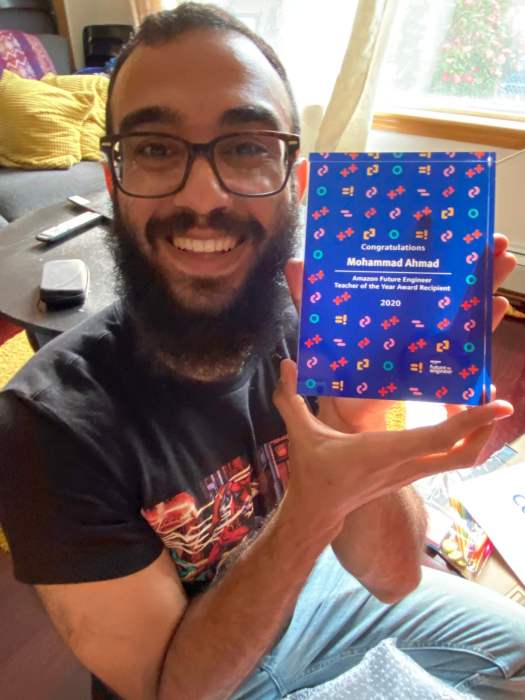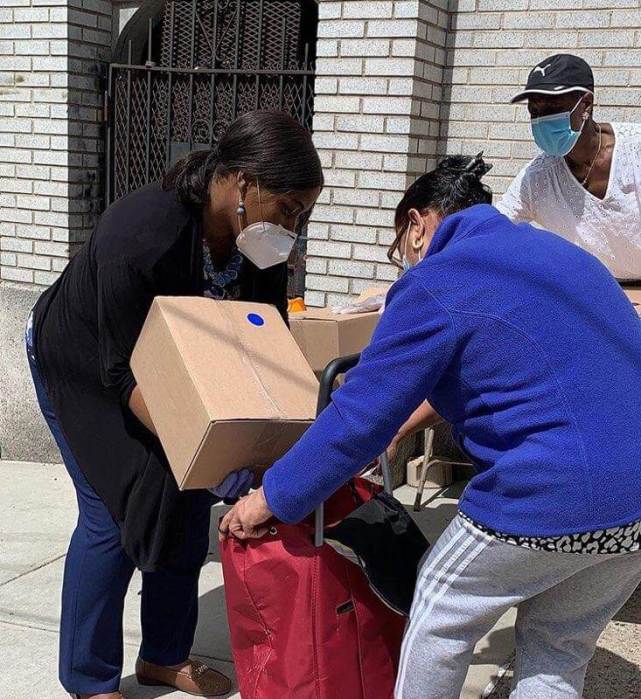On Sept. 19, U.S. Sen. Chuck Schumer and U.S. Rep. Jamaal Bowman presented the congressional resolution declaring the Bronx and 1520 Sedgwick Ave., the birthplace of hip-hop.
The resolution designates Aug. 11, 2021, as “Hip Hop Celebration Day,” August 2021 as “Hip Hop Recognition Month,” and November 2021 as “Hip Hop History Month.” Schumer and Bowman said that the resolution, agreed to by the U.S. Senate, rightfully recognizes and celebrates hip-hop and its cultural impact. Schumer and Bowman said that federal recognition of the art of hip-hop is long overdue.
Hip-hop, now a world-wide phenomenon, had humble beginnings in New York City. Schumer and Bowman explained that on Aug.11, 1973, at a “Back To School Jam” held in the recreation room of 1520 Sedgwick Ave., in the Bronx, a new innovative style of disk jockeying and engaging the crowd with rap was introduced by Clive “DJ Kool Herc” Campbell. Since then, hip-hop culture has spread across the nation and the world, uniquely infusing itself into the roots of communities everywhere.
“For decades I have fought to preserve and protect the legacy of Hip Hop as a truly original American art form. When greedy landlords wanted to close the apartment building on Sedgwick Avenue, where DJ Kool Herc first disk jockeyed beside an emcee and lots of hardworking people lived, we stopped them,” Schumer said. “I’m proud to honor hip-hop’s history and its lasting influence with this Senate resolution, which acknowledges the evolution of hip-hop culture and the tremendous impact it has had on our society.”
The art and culture of hip-hop, an original American creation, has transcended boundaries and has been reinvented many times over since its creation in 1973. Hip-hop artists and supporters were originally of African heritage, but hip-hop art and culture has become a melting pot, with its artists and supporters transcending ages, ethnicities, religions, locations and socioeconomic statuses. Hip-hop has spawned a multi-billion dollar economy in various industries from high fashion to social media platforms. This influence has arguably placed hip-hop at the center of American culture, both directly and indirectly influencing other genres of music and parts of American social life.
Schumer has long led efforts to honor the birthplace of hip-hop. In 2007, Schumer rallied with tenants at 1520 Sedgwick Ave., to celebrate the apartment building’s eligibility to be recognized on the state and national registers of historic places as the birthplace of hip-hop.
Previously, Schumer supported New York City’s efforts to save the building. After being purchased by an investment group, tenants of the building reported poor living conditions. As a result, the city created a program to aid “distressed multifamily buildings,” providing funds for building repairs, which prevented tenant evictions and increases in rents.
Schumer and Bowman were joined by DJ Kool Herc, KRS-One, Cindy Campbell, LeRoy McCarthy, state Sen. Jose M. Serrano, Bronx Borough President Ruben Diaz Jr., NYC Councilwoman Vanessa Gibson, Bronx County District Attorney Darcel Clark, ED of the Universal Hip Hop Museum, Rocky Bucano and others.
“Hip hop is the rebirth of civilization,” Bowman said. “For Black people who were disconnected from their continent, from their language, from their culture, and from their ancestry, hip hop represented a step toward rediscovering what it means to be a Black American. In using the English language to create an entirely new art form, the pioneers of hip hop created a vessel that grew to impact nearly every facet of American culture. As we continue our fight to advance civil rights and racial justice, we need to not only recognize but celebrate how hip hop and Black Americans have given so much to our culture and our country. I’m proud to lead Congress in formally recognizing the contributions that hip hop has made and will continue to make to our country and the world.”
























